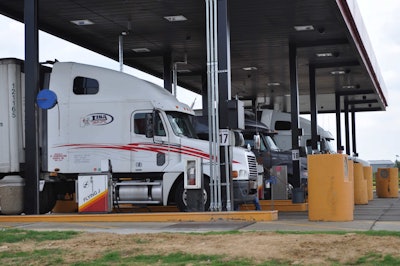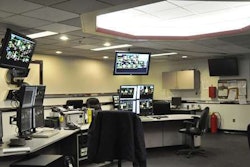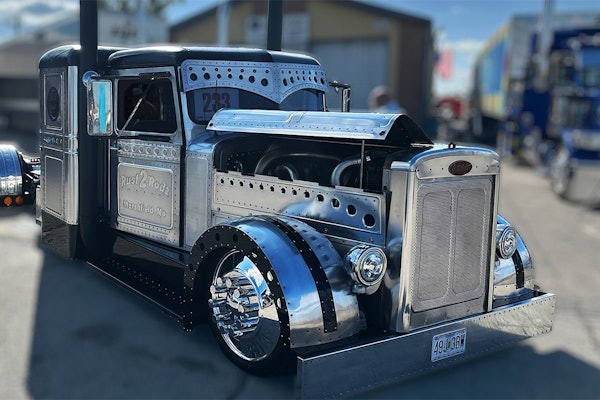 Operating under your own authority means taking responsibility for tracking miles traveled and the amount of fuel purchased in each state in order to file IFTA forms.
Operating under your own authority means taking responsibility for tracking miles traveled and the amount of fuel purchased in each state in order to file IFTA forms.One major mistake many owner-operators make when considering the move to run under their own authority is to underestimate the total cost of operations. It’s easy to look at a load board and dream about getting those rates posted and not sharing them with your carrier. It’s another matter entirely to end up making less than you do now because of all of the additional costs.
Prior posts covered how to become a motor carrier up to the point of pulling your first load. Let’s talk about what you need to know to operate. You’ll need to consider these areas and decide if you are going to do them yourself or pay somebody else to do them:
- Rates and lanes
- Compliance
- Safety
- Drug testing
- Hours of service
- Accounting
- Fuel tax
- Mileage tax
Compliance, safety, drug testing and hours of service fall under Federal Motor Carrier Safety Administration regulations. Addressing these can cause a lot of stress and confusion.
Also under FMCSA is the new-entrants safety audit. Make sure you are up to date on what this includes and that you have a plan before getting started.
Under a new FMCSA policy, new entrants to trucking will face a shorter deadline for correcting problems in their applications. Applicants must submit a corrective action plan within 15 days of the audit or, in some cases, 10 days. You will also need to have in place a drug and alcohol testing program, as well as one for keeping hours of service and vehicle maintenance records.

A carrier often handles tax filings for its leased owner-operators, but now you are the carrier. You are responsible for accounting for income and revenue for federal and state tax purposes, fuel tax, mileage tax and heavy vehicle use tax.
Also, it’s possible that you would be better off forming a limited liability corporation (LLC) or an S Corp for tax reasons before getting your own operating authority. Explore the question of tax structure with your tax preparer before starting the application process.
When you are operating as a carrier, you will not receive 1099s for the revenue you generate. You will need an accounting system that tracks all income and expenses.
Other crucial preparations include developing a system for invoicing, accounts receivable and tracking fuel and mileage taxes. The latter two require filing the appropriate forms. You will need to track all miles traveled in each state, as well as all gallons of fuel purchased in each state in order to file your IFTA forms. You may also need to file mileage tax forms in New York, Kentucky, New Mexico and Oregon if you travel in those states in any given quarter.
This may sound like a lot of work, and it is. Don’t make this decision lightly. It can be a great opportunity if done right, but it can be your worst nightmare if you fail to plan and execute properly. I have seen many good owner-operators quickly go out of business by trying to shortcut this process.
If you are still interested in becoming a motor carrier, then create your plan, figure out the costs, create your budget and follow through.









